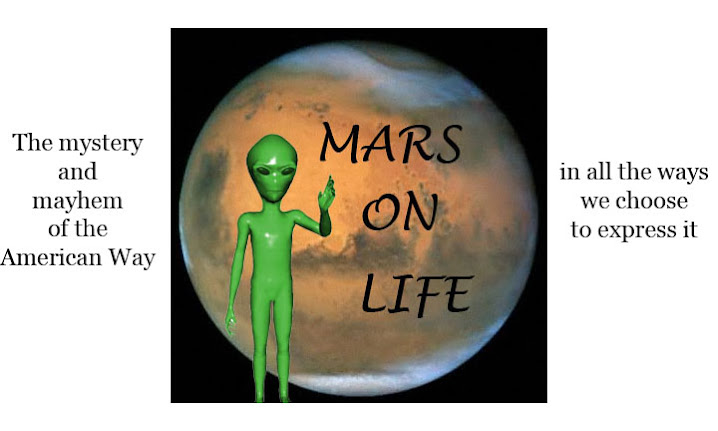
It is a relief to know that we no longer have enemies and that we no longer make war. We now make "overseas contingency operations," the "operations" sounding like something surgical and precise. We also do not militarily surge (like the tide), we...haven't quite decided what it is we do when we send troops "overseas," and while what we do might be tide-like in its swell, it is likewise unnamed even as it increases and crosses over the ocean.
We now have "man-caused disasters" instead of terrorist attacks. The new euphemism--however less than belletristic--serves notice on the use of "disaster" the way most English-speaking countries use it, as a broad and casual term for something that didn't quite pass muster. A bad Internet date is a "complete disaster," as is spilling a creamy caramel latte onto your white linen slacks. "Disaster" in its most common modern usage is then diminished and, if not reversible, is at least recoverable. There will be other dates. Drycleaners are ubiquitous, especially in Manhattan.
The Obama administration equates disaster to attack and does away with terrorists entirely. They no longer exist and it follows that we then cannot be terrorized. We cannot be "mannized" either, but this is outside the rhetorical scope. Or is it?
Terrorists are now "man," metaphysically, as in God vs. Man, Man vs. Machine, Man vs. Nature. Man vs. Himself. Terrorists are human beings, all good men coming to the aid of their party, even if that party is one to which we never again wish to be invited.
Since we can no longer be attacked, we now must be disastrophied. Again, an impossibility. It is the imprecision of language that is in atrophy.
Man-caused disasters are separate from Acts of God (or natural disasters). Legally, Acts of God are funny things, at least in the insurance industry. A flood, as original an Act of God as is conceivable, is not recoverable from the Hartford. Men often fail to read their homeowner's policies closely and pay out of their own pockets. Not to put too fine a point on it, but in selecting the term "man," you wonder if the euphemism's author chose it specifically for its oppositional qualities.
We could be catastrophized or calamatized, but we cannot be disastrophied, which makes the selection of "disasters" seem unbalanced and impossible, lacking in a dynamic flow-through. It is purposeless language without a natural endpoint, whether hostile or not. Worse, it sounds like bushwa propaganda designed to rid America of any notion that we might, at times, engage in warfare. It also strongly implies that even a nation perceived as war-mongering can suddenly become bland.
On the other hand, the new lexicon removes defiance and aggression from the language. This might not be so detrimental as it appears. The language of the Bush administration had the unsettling thrust of mid-century American hegemony. We surged, we attacked, we...neutralized.
Today, there is no true north with language. We have now abandoned one language for another, trading too much emphasis for too little elucidation.
We may not want "enemy combatants" at Guantánamo Bay, but we are presently at risk of becoming both enemies and prisoners of our own language.
Image: Michelangelo, The Creation of Adam
Friday, April 3, 2009
God Created Man, Man Caused Disasters
Subscribe to:
Post Comments (Atom)









No comments:
Post a Comment